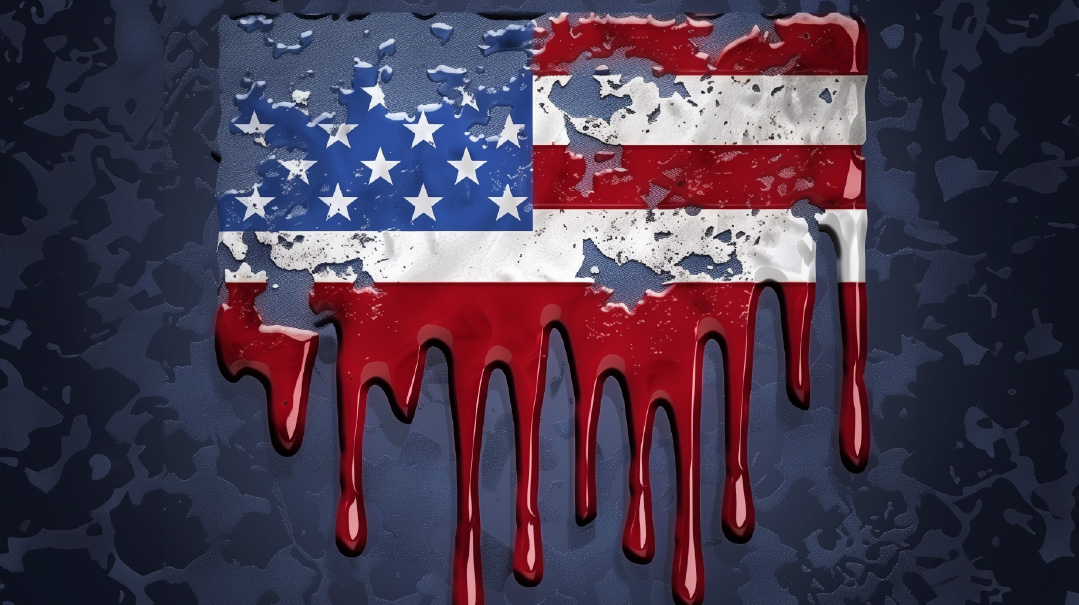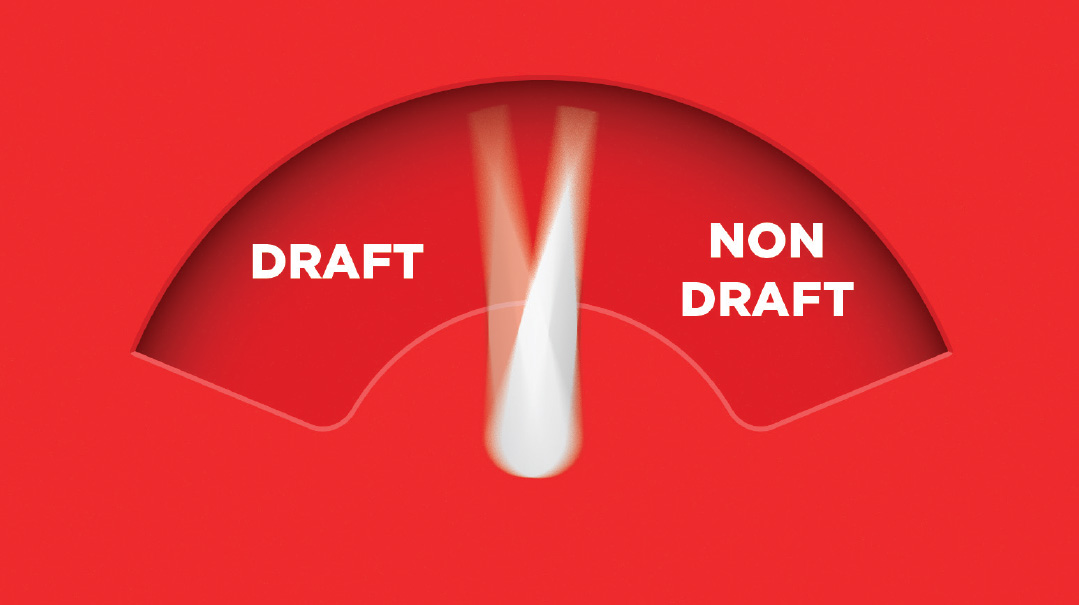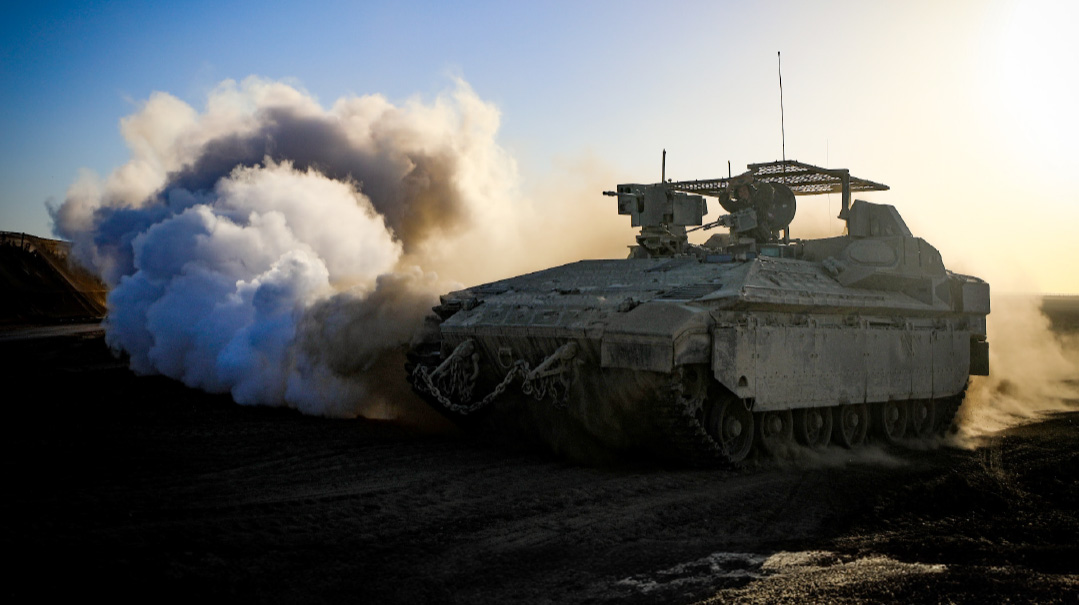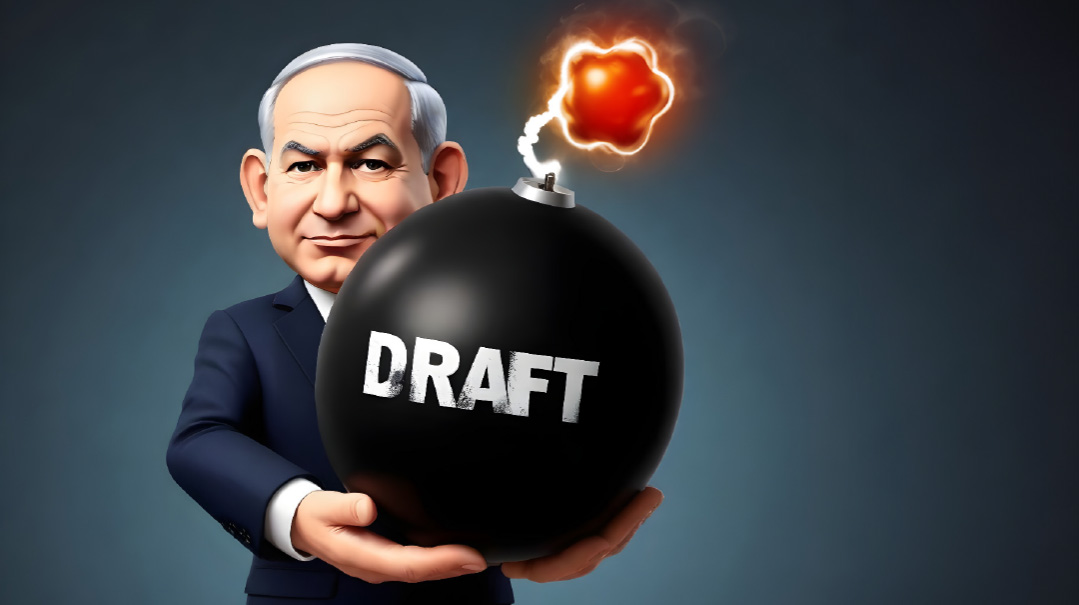Menace on the Red Sea

How a ragtag band of rebels are choking a crucial maritime route
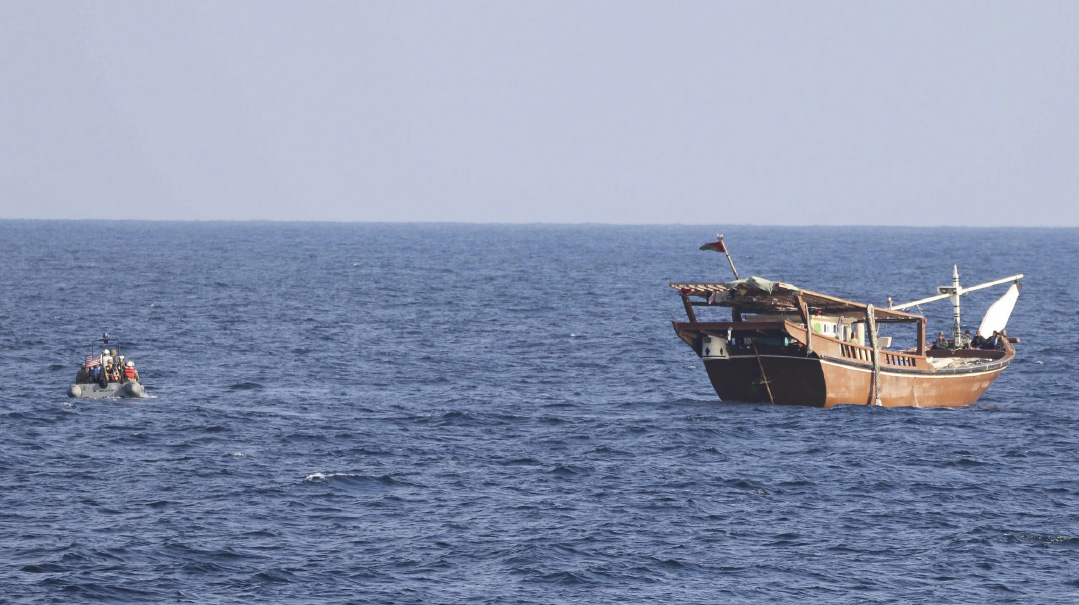
Photos: EPA Images, AP Images
Seemingly out of nowhere, the Houthis are capturing world headlines with audacious acts of piracy that threaten to derail the global economy. As this ragtag band of Yemeni Islamist terrorists focus international attention on the Red Sea, the question is whether an international naval force led by the US is enough to keep the shipping lanes open, or whether Israel will be forced to step up its own response
ON October 7, when Houthi terrorists in Yemen announced they were joining the fight against Israel, it drew little attention. Hamas was obviously the main threat, and hardly anyone knew who the Houthis even were. The few video clips circulating on the Internet portrayed them as a ragtag rebel group, far weaker than more dangerous powers like Hezbollah or Syria.
But the last two months have given the lie to those initial assessments. Exchanges of fire, including Houthi drone attacks on Eilat, Israeli retaliatory bombardment of Yemen, and escalating Houthi piracy in the Red Sea, have prompted major world powers to assemble a naval force to patrol the region. The coalition isn’t acting on behalf of Israel, but because the guerrillas have managed to strike at the heart of the free world: its pocketbook.
Attempting to choke off one of the world’s most crucial maritime passages, vital for East-West trade and for shipping oil, the Houthis have added another layer of complexity to the web of conflicts in the Middle East. This latest development has put the world’s leading economies, and particularly that of Israel, on the brink. And it shows all the hallmarks of being masterminded from Tehran.
The rise of the Houthis is a textbook example of the Iranian game plan in action, deploying an arm’s-length proxy to undermine Israel and the Unites States, at very low cost to Iran itself. So as the Yemeni tribesmen focus international attention on the Red Sea, the question is whether a naval force playing defense is enough to keep the shipping lanes open, or whether Israel will be forced to step up its own response.
At the front of military planners’ minds will be another question: How did a ragtag band of rebels manage to seize such a decisive role in a conflict that’s not even their own?
Who are the Houthis and how did they gain power in Yemen?
Located at the remote southeastern end of the Arabian Peninsula, Yemen is a country few can likely pinpoint on the map. It was divided between the Ottoman and British empires during the 19th century, then between the US and USSR during the Cold War in the 20th century. It finally unified and held its first presidential election in 1999. However, the result of that election —Ali Abdullah Saleh won an eyebrow-raising 96.2 percent of the votes — portended the corruption that was to follow.
The political class enriched itself by mortgaging the nation’s future. Encroaching poverty and destitution proved fertile ground for a nascent Islamic guerrilla group formed in 1990 belonging to the Zaidi Shiite minority, supported by the Iranian government and campaigning against “Western values.” Officially known as Ansar Allah (“Supporters of G-d”), the terrorist group was comprised mainly of members of a Yemeni tribe known as the Houthis (hoo-tees) led by Hussein al-Houthi, and came to be known by that name. The group bided its time, waiting for the opportune moment to stage a coup d’etat.
That moment came in 2014. The Houthi takeover, initially seen as a “local” event, proved a significant failure for the West in general and the Obama administration in particular. During this time, the White House implemented what it termed the “Yemen model”: supporting armed forces against terrorist organizations without deploying troops. That effort was sadly ineffective in quelling the rebels.
The Saudis then stepped in and tried to subdue the Houthis, but as Ilan Zalayat, a researcher at the Institute for National Security Studies, tells Mishpacha, their intervention was “a complete failure.” The Saudis backed a faction called the Presidential Leadership Council, led by veteran politician Rashad al-Alimi. That faction was successful at gaining international recognition — but not much else. The Houthis gained control over large parts of Yemen.
The Houthi dominance was a victory for the Iran-led axis over Saudi forces, supposedly backed by the United States. As we all know, in the Middle East, strength is essential in demonstrating leadership.
On December 23, after months of talks between the representatives of the warring factions in Riyadh, the UN’s special envoy Hans Grundberg announced that the two sides had agreed to a cease-fire and to “engage in a United Nations-led peace process to end the war.” This development not only signaled a possible end to a conflict that, according to official figures, has taken some 380,000 lives, 65 percent of them children, and displaced over 4 million refugees; it also set the stage for Saudi Arabia’s relative passivity in the face of subsequent Houthi piracy, since any misstep could reignite hostilities.
Why are the Houthis targeting Israel — and why now?
Seizing power in the conflict-ridden country gave the Houthis justification for implementing harsh measures, such as purging government officials tied to the previous regime, imprisoning or assassinating political foes, and quashing all dissent, all in the name of “liberating” Yemen from “oppressors.”
In the wake of that, sustaining the military conflict with Western powers resulted in a devastating famine, claiming over 130,000 lives and earning the grim UNICEF designation in 2020 as “the largest humanitarian crisis in the world.” Furthermore, Houthi militias were accused of pilfering humanitarian aid intended for civilians — a modus operandi among terrorist groups claiming to champion “the rights of the people.”
However, the imminent internal cease-fire has undermined the legitimacy of the terrorists’ rule. Terror regimes don’t tend to thrive when there’s too much peace and security. They need enemies, threats, and targets to retain legitimacy. That’s why October 7 presented a perfect opportunity to reignite the narrative that brought the Houthis to power.
“The Houthis are clearly supported by Iran, but they are not the same as them,” Zalayat explains. “Iran has given the Houthis some independence, unlike Hamas or Hezbollah. This is because they have a domestic concern. They have to maintain their own narrative within their country to justify their seizure of power. They built a narrative under which the United States and its allies, like Israel, deprived them of power in the past, until they recovered it. The real enemy, they say, is the West, so they justify their recent attacks as part of the war against their enemies.”
However, the mayhem they have caused is far beyond their own domestic capabilities; they obviously needed prodigious Iranian military support. Vice Admiral (retired) David Ben-Bashat, former head of the Israeli Navy, tells Mishpacha that although the Iranians try to maintain plausible deniability, their fingerprints are all over the Houthi piracy operation.
“Iran is like an octopus, with many forces attacking on its behalf so it can avoid any direct involvement,” Ben-Bashat says. “For example, they have Hamas, Hezbollah, militias in Iraq — and they also have the Houthis.”
In fact, current developments in the Red Sea are unfolding within the context of an escalation in the conflict between Tehran and Washington. An attack carried out by Iranian-backed militias on US forces in northern Iraq resulted in one fatality and more than 20 injuries.
The White House has also pointed out the link between the Yemeni guerrillas and the Iranians. Adrienne Watson, spokesperson for the White House National Security Council, declared in a statement, “Iranian support during the Gaza crisis has empowered the Houthis to carry out attacks against Israel and maritime targets, although Iran has frequently delegated operational decision-making authority to the Houthis.”
“The Houthis don’t have much weaponry or military tools of their own — everything is provided by Tehran,” Ben-Bashat explains.
For now, although they have launched several long-range missiles, their weapon of choice seems to be drones, a weapon with which Iran has demonstrated its expertise. But although the Houthis have a quantitative deficiency, they have compensated for it with a strategic geographical position: They seek to throttle world trade by terrorizing the Bab el-Mandeb Strait.
How damaging could some Red Sea pirates really be?
Only 16 miles long, the Bab el-Mandeb Strait is a potential commercial choke point. It is at the opposite end of the Red Sea from the Suez Canal, and connects to the Gulf of Aden and, by extension, the Indian Ocean. More than 17,000 cargo ships on their way to or from the Mediterranean Sea pass through this passage every year, carrying not only manufactured goods but also as much as 12 percent of global oil trade, amounting to 8.8 million barrels per day, according to the US Energy Information Administration.
In response to the attacks, numerous shipping companies have opted to alter their routes. Industry leaders such as Danish giant Maersk and Taiwanese powerhouse Evergreen have redirected vessels all the way around South Africa’s Cape of Good Hope — a journey roughly 40 percent longer, slowing down shipments considerably. While the US naval coalition has allowed limited resumption of normal shipping routes, capacity is still far below 100 percent.
In addition, cargo companies have raised container prices by almost 300 percent over the last month, and if these increases are reflected in domestic market prices, there could be a shake-up in the international economy.
This isn’t the first time in recent history that rogue attackers have destabilized the shipping industry. In the early years of this century, Somali pirates captured international headlines with their frequent attacks in the Indian Ocean. The current situation, however, is a threat of a different magnitude. The Houthi pirates have Iran’s military might backing their every move. Their goal is not simple pillage and plunder but rather to create broader economic chaos.
As it stands, the primary economic casualties of this war are Arab nations — foremost among them Egypt. A staggering 98 percent of goods traversing the Bab el-Mandeb Strait subsequently pass through Egypt’s Suez Canal, a pivotal conduit in trade between Europe and Asia. Egypt raked in $10 billion in revenues in 2022 from canal operations, so this conflict is hitting its coffers directly.
Lebanon, too, finds itself in the economic crossfire. The country annually exports around 400,000 tons of agricultural products, worth $1 billion, to Gulf states like Qatar, Bahrain, Kuwait, and the United Arab Emirates, primarily via the Bab al-Mandeb Strait. Jordan is another casualty, having witnessed a nearly 15 percent drop in cargo ship arrivals at the port of Aqaba in the past week.
And of course, the strait is essential for the functioning of Israel’s economy as well. The results have already been felt in the port of Eilat, where activities have declined by a staggering 85 percent since the onset of Houthi attacks.
“The Bab el-Mandeb Strait is fundamental for Israel,” Vice Admiral Ben-Bashat emphasizes. “Israel is almost like an island, and the only way for many commodities to reach the country is by sea. Forty percent of the country’s imports come through the Red Sea. Hypothetically, it might be possible to reach the ports by circumnavigating Africa, but that would inevitably increase costs and take much longer. But beyond that, Israel doesn’t want anyone, whoever it may be, to prohibit travel through international waters. The Six Day War and the 1956 Sinai War started because our enemies wanted to close off trade routes.”
Nevertheless, Ben-Bashat expresses confidence that the Houthis won’t be able to block the passage.
“The coalition won’t allow it,” he says, referring to the naval task force from 15 countries led by the United States, along with Britain, France, and Italy, committed to patrolling Red Sea waters to ensure free circulation of cargo.
The naval task force was formed after Houthis commandeered some vessels and exchanged fire with US ships, resulting in the downing of dozens of drones.
“The US Navy doesn’t need the help of other nations;” Ban-Bashat clarifies. “If they wish, they could end the matter by themselves. The issue is that they want to make it clear that this is not a conflict directly concerning them, it’s an international conflict. That’s why they want other countries to join the coalition.”
Ben-Bashat says the coalition stressed that, “for diplomatic reasons, they wouldn’t accept Israel into the coalition, just as during the war against Saddam Hussein, so that no one should suspect that this action was orchestrated to defend Israeli interests and garner the support of certain Arab countries.”
Do the Houthis gain or lose from their “bad boy” status?
The sobering truth is that this naval task force could be a double-edged sword, with unintended consequences. Rather than cowing the Houthis, it might empower them with the type of publicity that Islamic terrorist organizations prize; they will be seen as stalwart, brave underdogs taking on Western bullies.
“In the Arab world in general, there is support for the Houthis, because the street sees them as the group standing up to the United States and Israel,” explains Ilan Zalayat of the INSS.
In a troubling sign of that admiration, the Islah terrorist organization — the Yemeni version of the Muslim Brotherhood, historically at odds with the Houthis — has expressed support for the maritime attacks.
Another not-so-minor concern is that, despite all the Arab nations being affected by the troubles in the Bab el-Mandeb Strait, only Bahrain has officially stepped forward to take part in the international naval task force.
“No Arab country wants to be seen as an ally of US or Israeli interests,” Zalayat says.
All that being said, the Houthis also have much to lose from the maritime attacks. In this very enmeshed region, instability in major sea routes could quickly boomerang on its perpetrators in the form of domestic discontent. Prices in Yemen are skyrocketing, and many vessels are avoiding docking in the country. The scarcity of basic goods is already being felt in cities, and the big question is whether the Houthis can maintain their rebel narrative in the face of a collapsing economy.
Why hasn’t the West taken off the kid gloves against a group of ragtag pirates?
Given all the dire economic repercussions of the maritime attacks, why hasn’t the US-led naval task force dealt with the Houthis in a decisive way?
“The main reason they avoid directly attacking Yemen is to avoid spoiling the progress in cease-fire negotiations in the Yemeni civil war,” Zalayat says.
He elaborates that Saudi Arabia, the big loser in that civil war, is the one making this demand. An aggressive stance by Riyadh could jeopardize a peace agreement that has been gestating for almost ten years. Given that the Biden administration also desires the agreement, and the Saudis are trying to curry favor with Washington, that gives them added impetus to avoid roiling the waters.
But this also leads to an underlying question: If the Houthis are indeed an arm of Iran, why not attack the head of the octopus directly?
Zalayat considers it a fundamentally practical decision. “Both the United States and Israel prefer to avoid a war of the magnitude that an attack on Iran would entail,” he explains. “Despite the gravity of the Red Sea conflict, it is tiny compared to what could happen if a direct war against the Iranian regime were declared. So the decision is to keep the conflict as mild as possible.”
For now, Israel seems content to allow its allies to handle the Houthi menace while it focuses on Hamas and keeps a watchful eye on Hezbollah. But neither Zalayat nor Ben-Bashat rule out the possibility that if Houthi attacks on Israeli territory continue, the Netanyahu government might decide to respond. Israel’s Defense Minister Yoav Gallant stated himself that “Israel will not tolerate” Houthi attacks and issued an ultimatum, saying, “We give the world a chance to act. If it does not, Israel will know how to defend itself.”
However, Zalayat estimates that, while it is important not to underestimate the Yemeni enemy, the focus at this moment should be on the more urgent conflict: “What the Houthis are seeking is to disrupt during the war in Gaza. Israel must focus on its fight against Hamas, as that is the main goal these days.”
(Originally featured in Mishpacha, Issue 993)
Oops! We could not locate your form.

